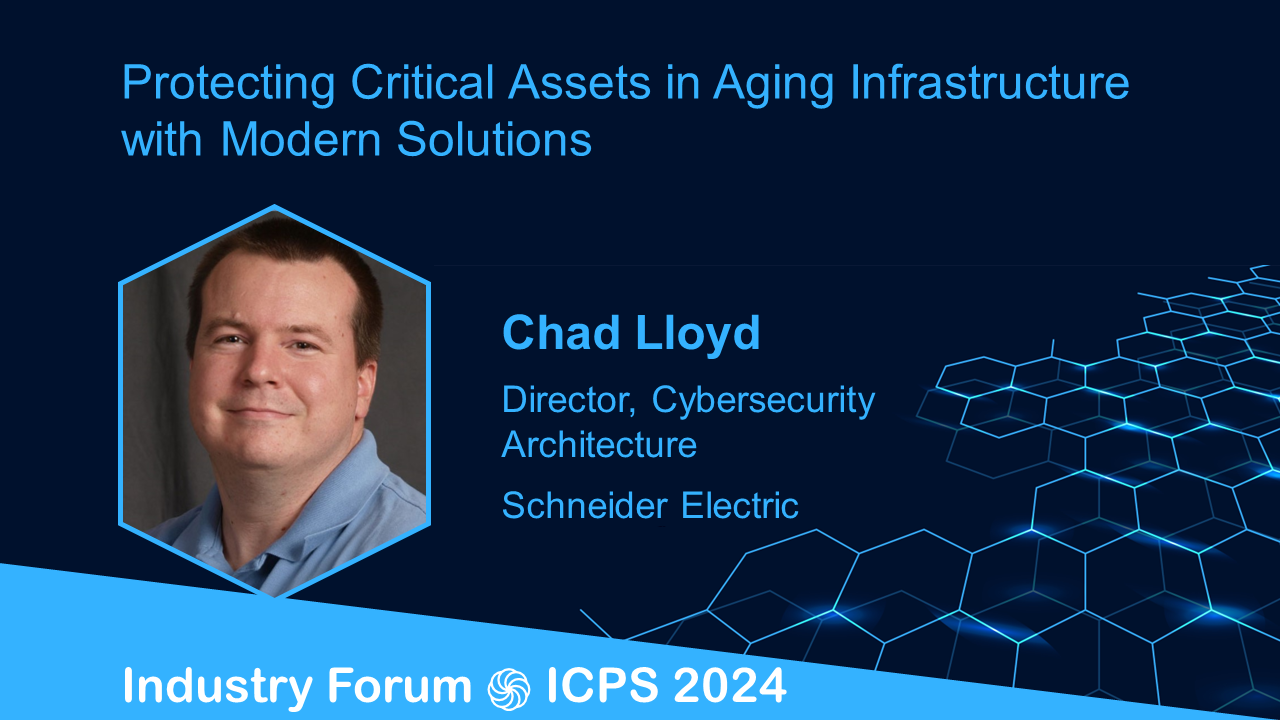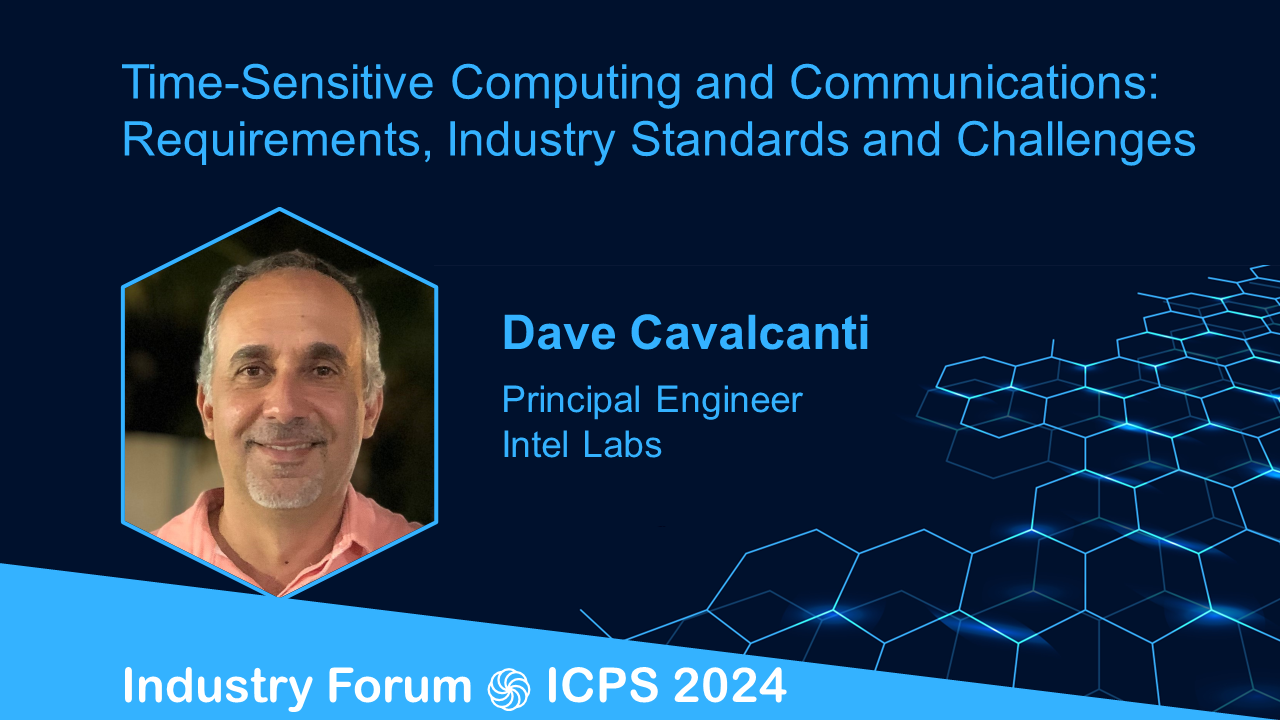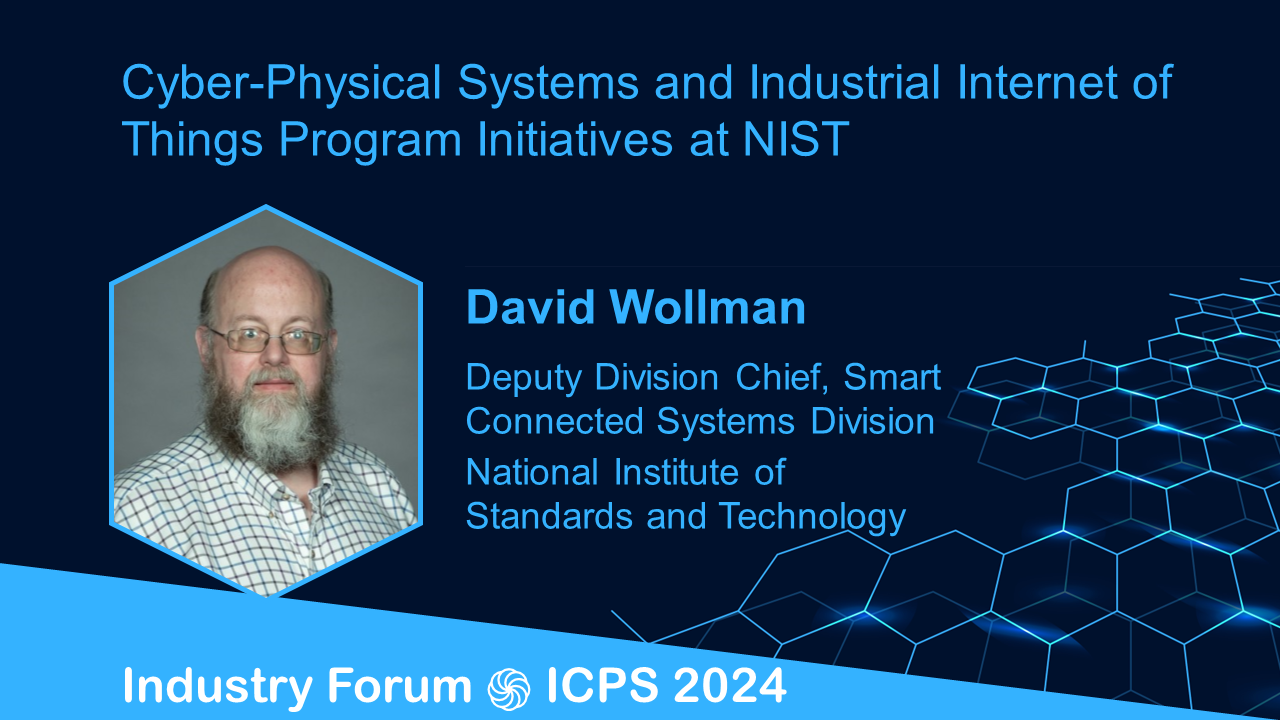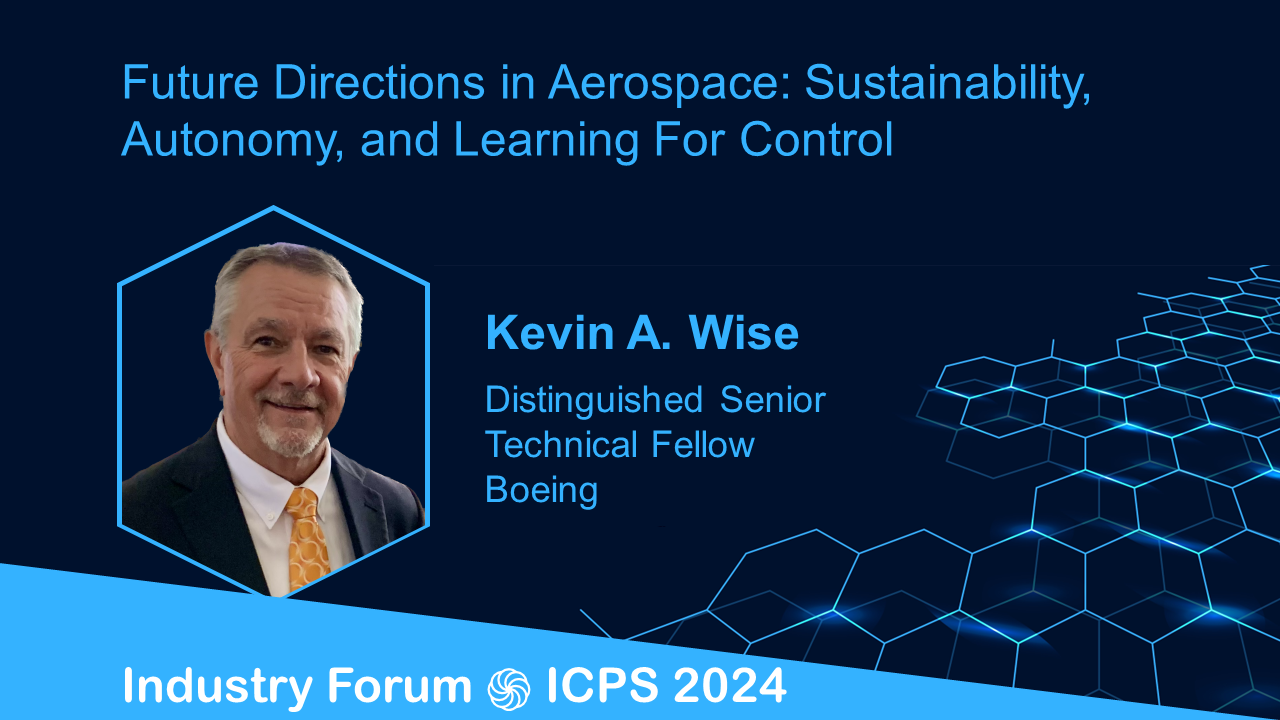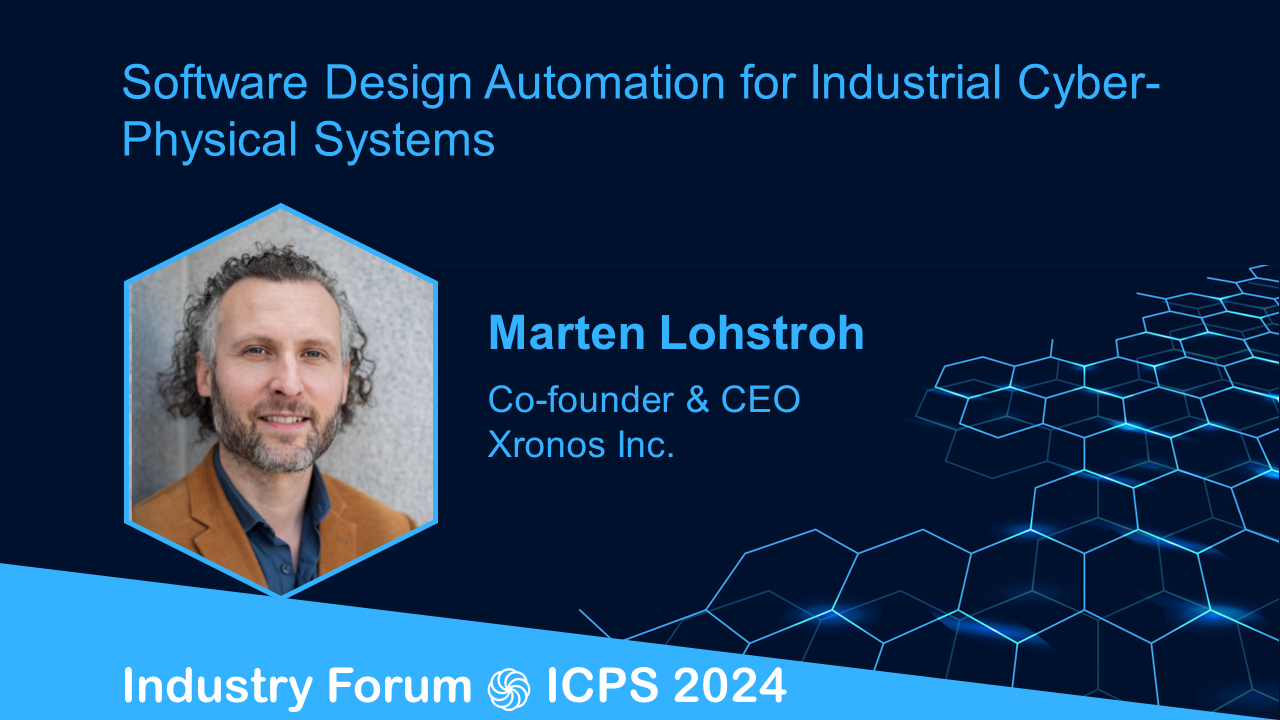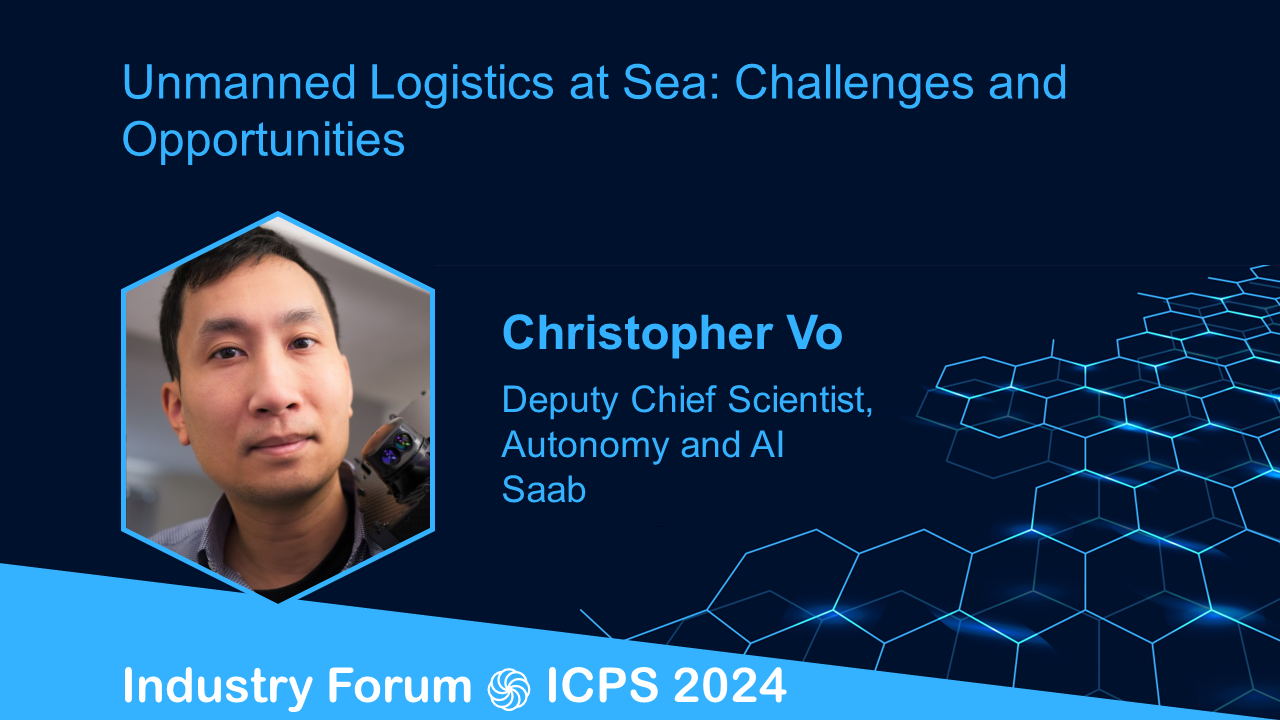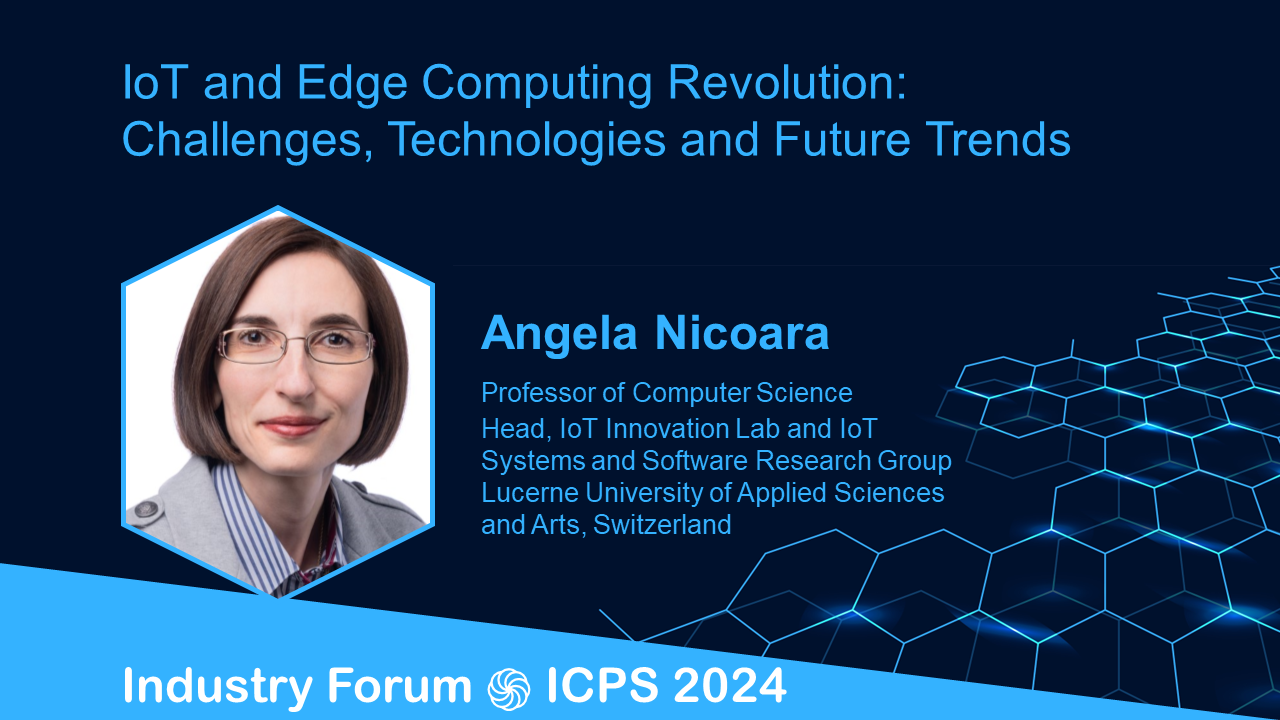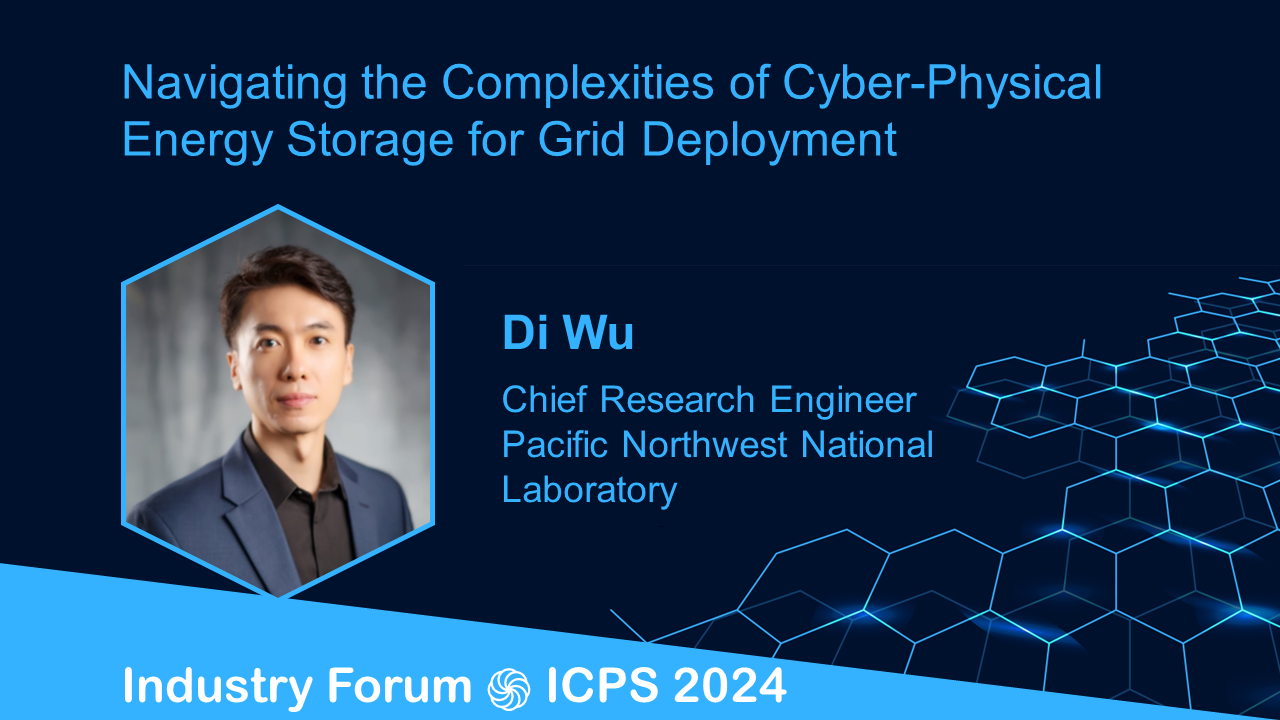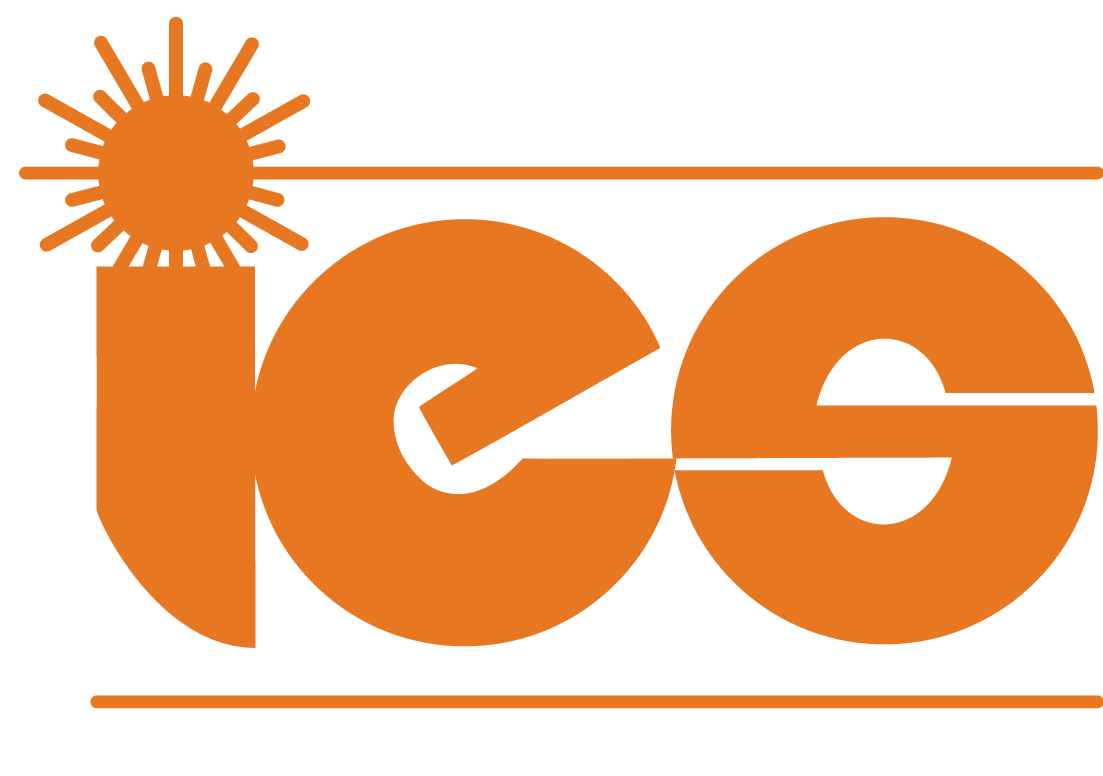Welcome to the ICPS Industry Forum!
We are delighted to host a distinguished lineup of speakers who are at the forefront of innovation and expertise in the realm of Industrial Cyber-Physical Systems.
This forum serves as a platform for thought leaders, researchers, and practitioners to exchange insights, discuss emerging trends, and explore the challenges and opportunities in this rapidly evolving field.
As we navigate the complexities of modern industrial systems, the integration of cyber and physical components becomes increasingly pivotal. Our esteemed speakers bring a wealth of experience and knowledge from diverse sectors, spanning manufacturing, energy, transportation, healthcare, and beyond. Their expertise promises to shed light on the latest advancements, best practices, and strategies for harnessing the potential of Industrial Cyber-Physical Systems to drive efficiency, productivity, and sustainability.
Join us as we delve into captivating discussions, gain valuable insights, and forge connections that will shape the future of industrial systems.
Please check the Program Schedule here: Link to Program Schedule.
Industry Forum Talks
| Talk-01 • Time-Sensitive Computing and Communications: Requirements, Industry Standards and Challenges Speaker: Dr. Dave Cavalcanti, Principal Engineer, Intel Abstract: This talk will discuss recent developments on distributed computing and communications to enable time-sensitive systems and applications, such as virtualized industrial automation, mobile robots, autonomous vehicles, and new immersive user experiences. The talk will discuss requirements for accurate time and deterministic communications across wired and wireless networks to leverage virtualized computing for advanced learning capabilities in real-time with high reliability. The talk will also provide an overview of the technologies, standards and industry ecosystem developing around distributed computing and Time-Sensitive Networking (TSN) as well as the technologies enabling the automation of time-sensitive systems design and management. The talk will discuss new paradigms where computing and communications are co-optimized. The presentation will conclude with open research challenges in time-coordinated distributed computing and learning strategies that can enable the next generation time-sensitive systems and applications. Biography: Dave Cavalcanti is Principal Engineer at Intel Labs since 2015, where he leads research, standards, and industry ecosystem activities to enable time-critical computing and communications. He also serves as the President of the Avnu Alliance, an industry group facilitating an ecosystem of interoperable time-sensitive wired and wireless networking across Ethernet, Wi-Fi and 5G technologies. Prior Intel, he was Principal Member of Research Staff at Philips Research. He received his PhD in Computer Science and Engineering in 2006 from the University of Cincinnati. He has published more than 50 academic papers and holds more than 30 US patents. He is the recipient of best paper awards at IEEE WFCS’23, WFCS’22, WFCS’21, IEEE INDIN’21, and the best demo award at IEEE Infocom 2018. |
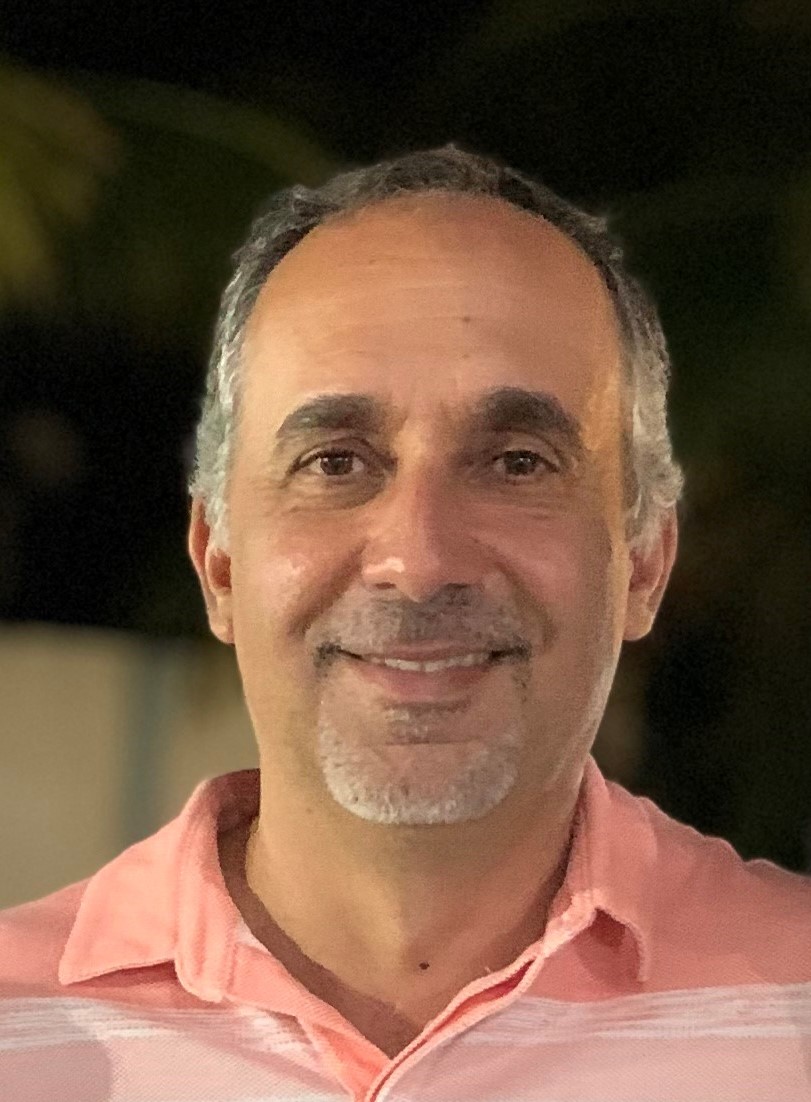
|
| Talk-02 • Future Directions in Aerospace: Sustainability, Autonomy, and Learning For Control Speaker: Dr. Kevin A. Wise, Distinguished Senior Technical Fellow at The Boeing Company and member of the National Academy of Engineering Abstract: Societal demands focused on reducing greenhouse emissions, urban air mobility, and looking and traveling beyond the moon are transforming aerospace. An industry in which change has been evolutionary is now faced with a digital revolution in how it engineers its products, capabilities, and services. This talk will discuss our trajectory towards the year 2050 and how the industry faces into this challenging and exciting future. The talk will discuss sustainability and electrification, autonomy and new air vehicle programs (Wisk, MQ-25, MQ-28), progress in robust and adaptive control, ending with a focus on challenges for engineering automation and control of these future systems. Biography: Kevin A. Wise is a VP, Distinguished Senior Technical Fellow, Flight Controls, in The Boeing Company, is President and CEO of Innovative Control Technologies, LLC, and is a Chief Advisor at Kelda Drilling Controls in Norway. He received his BS, MS, and Ph.D. in Mechanical Engineering from the University of Illinois in 1980, 82, and 87, respectively. Since joining Boeing in 1982, he has developed vehicle management systems, flight control systems, and control system design tools and processes for advanced piloted and unpiloted aircraft and weapon systems. Some programs include T-7A Redhawk, KC-46 Tanker boom, 777X, Dominator UAS, Phantom Eye Hydrogen Powered UAS, QF-16 Full Scale Aerial Target, X-45 J-UCAS, X-36, SDB and JDAM, and HAVE SLICK. His research interests include intelligent autonomy and battle management, aircraft and missile dynamics and control, hypersonic GNC, robust adaptive control, optimal control, robustness theory, and intelligent drilling solutions. He has authored more than 100 technical articles and seven book chapters; he has published a textbook titled Robust and Adaptive Control Theory, with Aerospace Examples; and he teaches control theory at Washington University in St. Louis and the University of Illinois Urbana-Champaign. Dr. Wise is a member of the National Academy of Engineering, is an IEEE Fellow, and Fellow of the AIAA. |
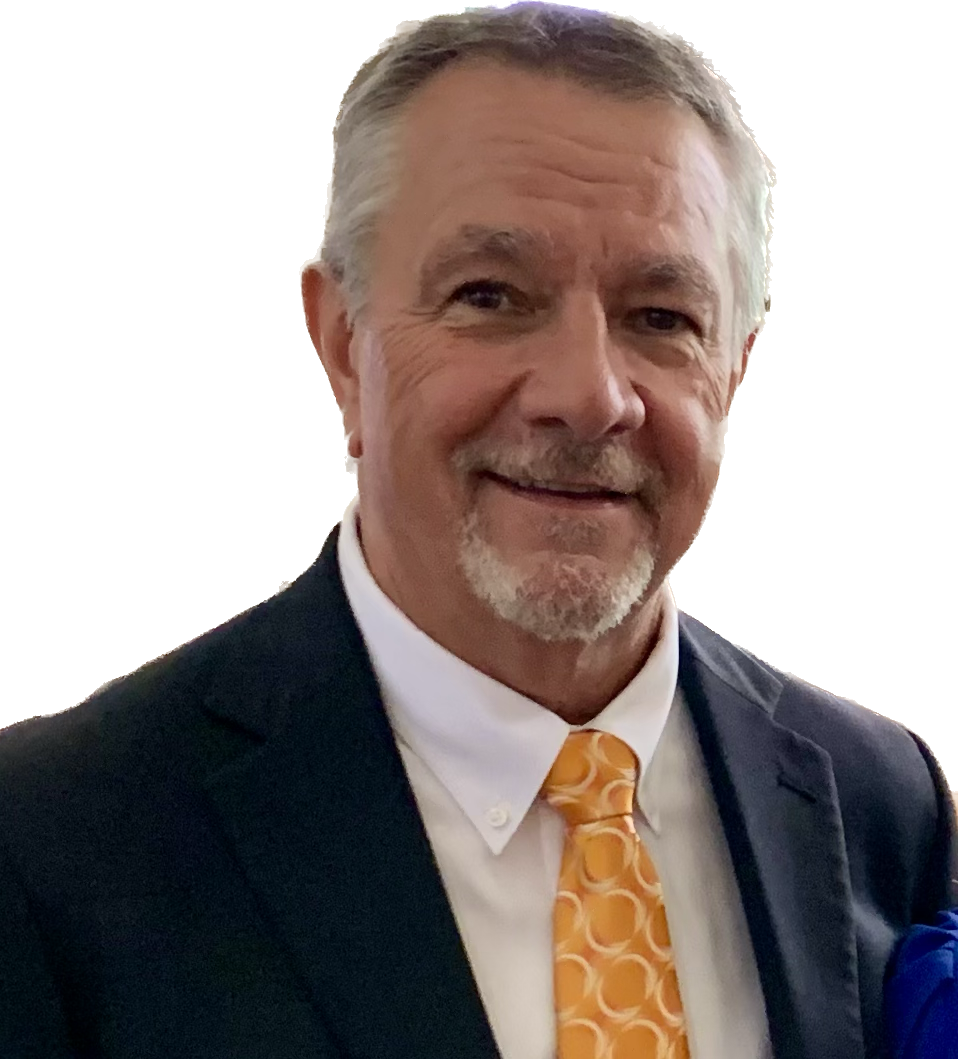
|
| Talk-03 • Protecting Critical Assets in Aging Infrastructure with Modern Solutions Speaker: Chad Lloyd, Director of Cybersecurity Architecture, Schneider Electric Abstract: Critical infrastructure continues to age and cybersecurity attacks are becoming more complex and prevalent. This talk discusses how attackers are increasingly using social engineering, assisted by artificial intelligence, to penetrate these systems. Compounding the issue is that many of the systems were designed to be isolated, some lacking even basic security controls such as firewalls. As these previously isolated systems are becoming connected to the Internet (sometimes inadvertently) they are now more susceptible than ever to attack. We will discuss strategies using modern techniques to secure these architectures. We will focus on the selection of Operational Technology (OT) protections and how they compare and contrast to their Information Technology (IT) counterparts. We’ll mention some standards to help along the way and some pitfalls to avoid on the journey. Are you confident in your critical asset’s security posture? Biography: Chad Lloyd is the Director of Cybersecurity Architecture and is a Senior Fellow with Schneider Electric. Chad has multiple certifications including CISSP (Certified Information Systems Security Professional) and CEH (Certified Ethical Hacker). Chad obtained his M.S. in Computer Science and his M.S. in Computer Engineering from Middle Tennessee State University. Chad has been with Schneider Electric since 2007 and leads the Schneider Electric Cybersecurity Architecture Team involved with secure solution design and development (primarily for critical infrastructure and specializing in IEC-62443 compliance). Chad holds numerous patents related to cybersecurity, hardware, and software. |
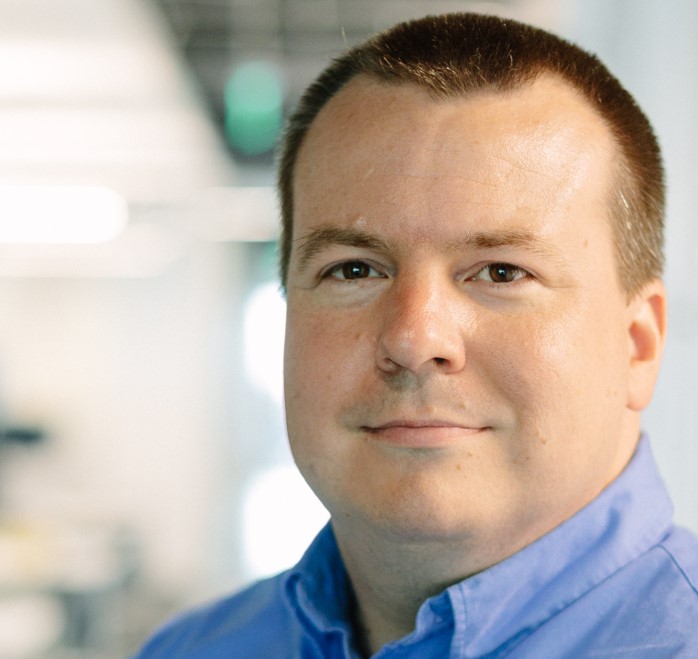
|
| Talk-04 • IoT and Edge Computing Revolution: Challenges, Technologies and Future Trends Speaker: Dr. Angela Nicoara, Professor of Computer Science, Lucerne University of Applied Sciences and Arts Abstract: In an increasingly digitized world, the future will see intelligent cities, where IoT-connected devices and sensors are used everywhere. IoT has taken hold in many areas, such as smart buildings, transportation, manufacturing, agriculture, and others. By 2025, that number is expected to reach nearly 42 billion. Energy efficiency, performance, and security of smart, secure, and connected devices at the edge of IoT are critical for realizing intelligent, robust, and sustainable end-to-end systems that deliver compelling new capabilities based on data analytics. The amount of data being generated by connected devices is massive, which will need to be collected, stored, managed, and analyzed. The vast amounts of IoT data, availability requirements and role of this data will drive industries to develop, adopt and deliver more IoT intelligent architectures, IoT distributed computing technologies, and IoT-specific edge networks. These will transform businesses, people's lives and the global economy, and drive growth and massive economic transformations in our global market in the coming years. In this talk, we will discuss how these IoT systems and technologies could change our world, as well as their benefits and challenges. We will show what trends, developments, and effects of IoT are expected, how these trends are driving more and more compute, storage, and analytics capabilities at the edge. Practical real-world examples in manufacturing, smart cities, and energy industries show where the opportunities and challenges lie. Biography: Angela Nicoara is Professor of Computer Science at Lucerne University of Applied Sciences and Arts (HSLU), Switzerland heading the IoT Innovation Lab and IoT Systems and Software Research Group. She is an impact-driven technical leader, systems researcher, and innovator with over 20 years of experience in industry and research, with a proven track record of building breakthrough technologies, systems, and software architectures in IoT, mobile, and distributed systems from inception to widespread adoption (at Intel USA, Deutsche Telekom USA, Google USA, ETH Zurich, Caatoosee Ltd, WebQuote USA, HSLU Switzerland). She has deep knowledge of technology, software, and business with education at ETH Zurich, Switzerland (PhD in Computer Science). Angela worked intensively and advanced state-of-the-art in these areas and published peer-reviewed articles that have appeared in numerous leading technical conferences, workshops, and symposia proceedings. She holds several patents for mobile systems. Angela is a regular speaker and panelist at premium international industry and scientific conferences. She received several prestigious awards and honors for her work and technical contributions, including Intel Division Recognition Award, Women in IT Awards USA - Finalist - "Innovator of the Year" (Top 10 Women Innovators in USA), Best Paper Awards from IEEE RTAS and ACM WWW, Deutsche Telekom Innovation Award. Her work has been quoted by the press and media, as well as co-chaired and served as review board and TPC member of multiple industry and scientific conferences. She is a member of ACM and IEEE societies. |
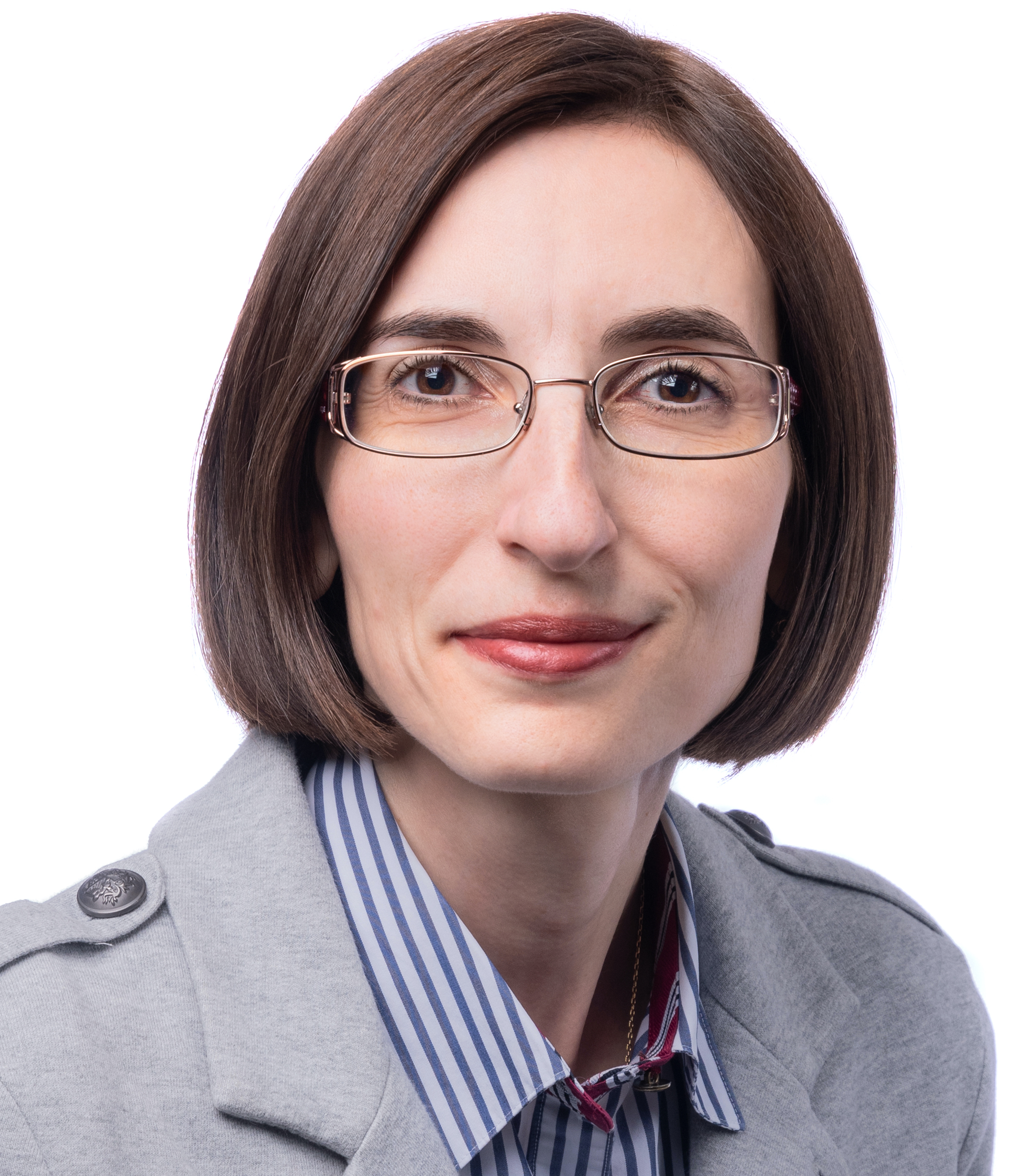
|
| Talk-05 • Cyber-Physical Systems and Industrial Internet of Things Program Initiatives at NIST Speaker: Dr. David Wollman, Deputy Division Chief of the Smart Connected Systems Division, NIST Abstract: For over a decade, the National Institute of Standards and Technology (NIST) has initiated and led program development and stakeholder outreach to advance a broad range of cyber-physical systems (CPS)/Internet of Things (IoT), from CPS/IoT devices and systems, to Operational Technology (OT) infrastructures, to at-scale integrated smart cities and communities. Dr. Wollman will give an overview of these efforts and provide his perspectives on the evolving Industrial CPS/IoT landscape and ever-proliferating terminology and potential future directions. Examples will include development of NIST frameworks and associated communities of interest (smart grid, CPS/IoT, cybersecurity, AI, smart cities); applications areas and capabilities such as automated vehicles, communication networks, digital twins, and modeling and co-simulation; and cross-sector data initiatives such as energy information and smart city key performance indicators. Biography: Dr. David Wollman is Deputy Division Chief of the Smart Connected Systems Division of the U.S. Department of Commerce’s National Institute of Standards and Technology (NIST). In addition to expanding NIST’s coordination and research activities in smart grid, cyber-physical systems (CPS), Internet of Things (IoT), and smart cities and communities, Dave leads the Communications Technology Laboratory’s Automated Vehicles program and is the Lab’s champion of the Smart Infrastructure and Manufacturing research focus area. Dave received his Ph.D. (Physics) from the University of Illinois at Urbana-Champaign, and has received many awards, including two U.S. Department of Commerce Gold Medals, a Silver Medal, a Bronze Medal, the NIST Applied Research Award, and three U.S. patents. |
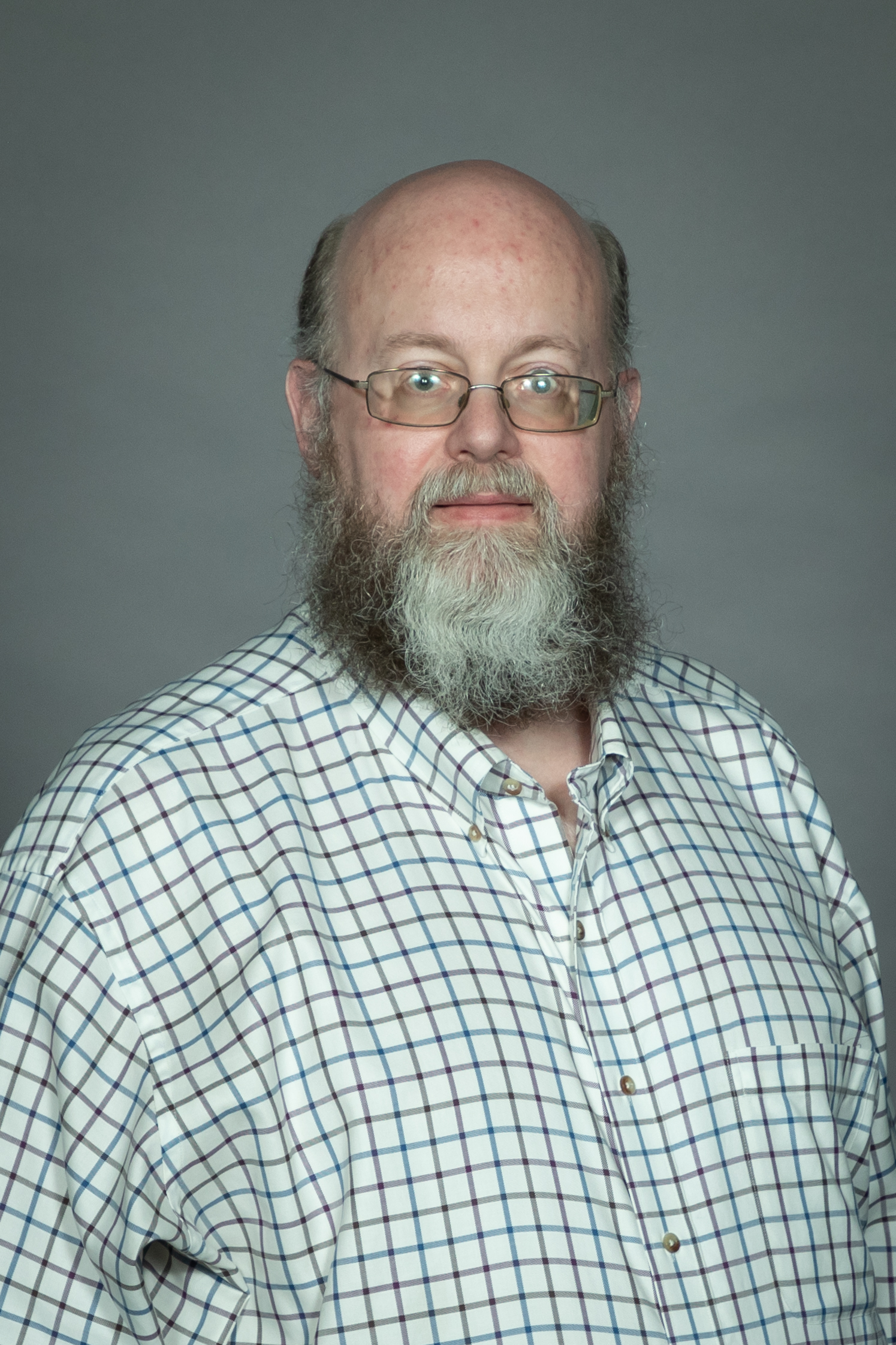
|
| Talk-06 • Unmanned Logistics at Sea: Challenges and Opportunities Speaker: Dr. Christopher Vo, Deputy Chief Scientist of Autonomy and Artificial Intelligence, Saab, Inc. Abstract: Underway replenishment (UNREP) is a critical naval operation that allows ships to receive fuel, supplies, and personnel while at sea, enabling sustained operations without the need to return to port. The transition towards unmanned sea vessels (USVs) for these tasks aims to revolutionize underway replenishment capability by adding operational flexibility, reducing risks to human life, and lowering costs. However, this transition is fraught with many technical challenges. Unmanned vessels must be capable of precise navigation and control in dynamic sea states, harsh weather conditions, and complex maritime environments. In part, this requires a combination of perception algorithms and a control regime able to use cross-sensor data inference to characterize changes in system operation, rapidly prune solution spaces to reconstitute control under changed dynamics, and identify areas of non-destructive controllability by continually re-calculating dynamic operating limits. This talk will introduce the UNREP use case and the progress that Saab and Purdue University have made in our pursuit of model-free, adaptive, and real-time perception and control methodologies to address this dynamic problem. Biography: Dr. Christopher Vo is a robotics scientist whose research has centered upon scalable, robust, and high performance algorithms for unmanned systems autonomy. Throughout his career, Christopher has worked to move ideas out of the laboratory and into the real world. He serves as the Deputy Chief Scientist of Autonomy and Artificial Intelligence for Saab, Inc., providing technical direction and overseeing execution of Defense Advanced Research Projects Agency (DARPA) and Office of Naval Research (ONR) programs involving advanced controls and situational awareness capabilities. Christopher is a prior startup founder and has served as the Chief Scientist for Sentien Robotics, which makes the Hive, a drone fleet aircraft carrier that makes large-scale drone swarm autonomy possible. During his time at Sentien Robotics, he worked on numerous research projects with DARPA, the United States Marine Corps, and Air Force Research Laboratory involving robust multi-vehicle planning, autonomy software architectures, distributed sensor data processing, and airspace planning and deconfliction. Christopher holds a Ph.D. degree in Computer Science from George Mason University, where he developed robust and scalable algorithms for the monitoring and control of swarms and wrote several published works in the areas of multi-agent systems and probabilistic motion planning. He has also co-founded and served as Vice President of the Drone User Group Network, one of the largest networks of civilian recreational and small commercial drone users in the United States of America. Through his educational efforts at the Drone User Group Network, he has taught hundreds of people how to build and safely operate a drone of their own. Today, Christopher continues to teach drone prototyping and innovation workshops to challenge and inspire students to develop unmanned solutions for real world problems ranging from wildfire management to first response. |
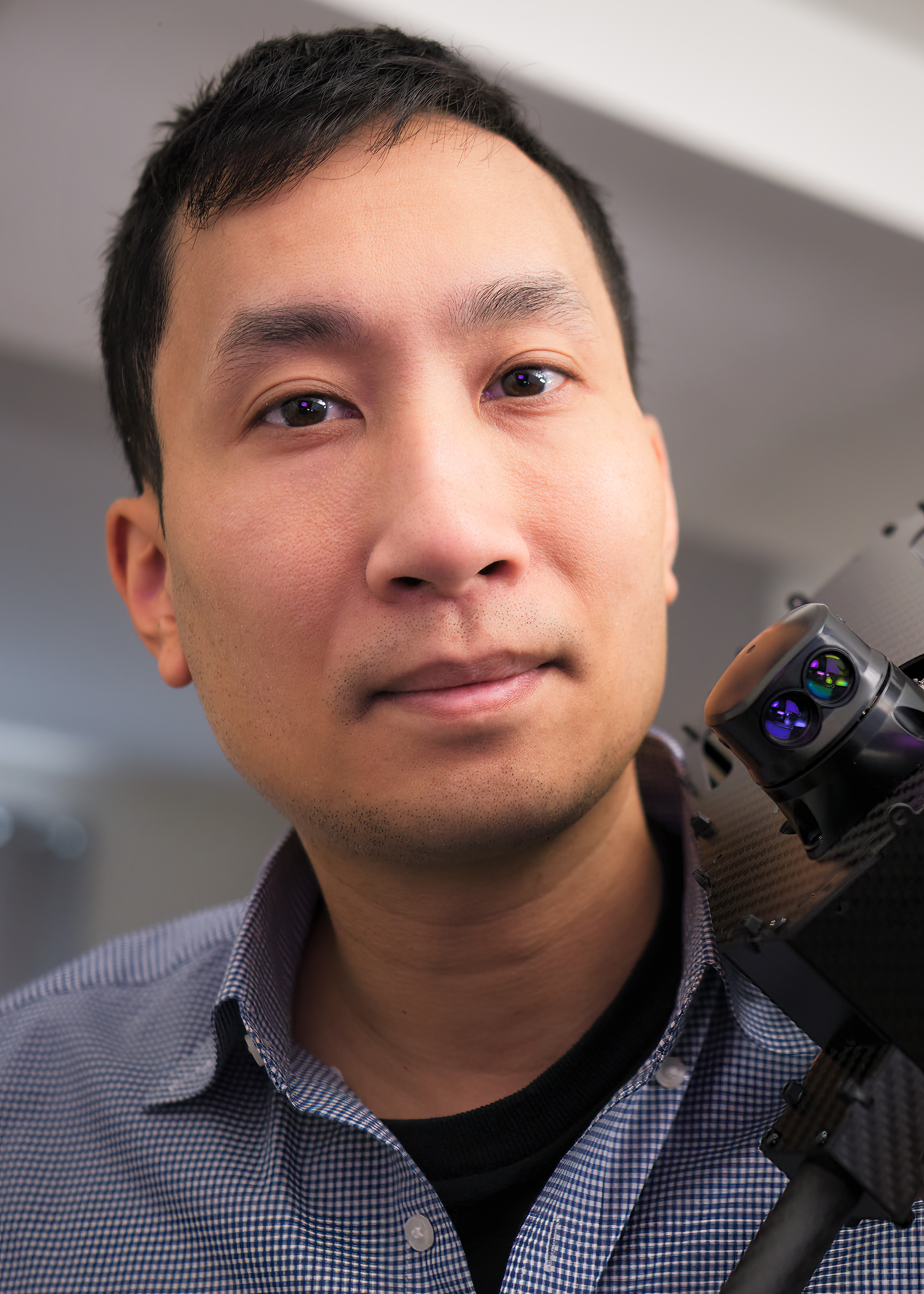
|
| Talk-07 • Software Design Automation for Industrial Cyber-Physical Systems Speaker: Dr. Marten Lohstroh, Co-founder & CEO of Xronos Inc. Abstract: Software in Cyber-Physical Systems (CPS) used to predominantly be confined to small single-core embedded processors, but the rise of network technologies and multi-core architectures has started to reshape the habitat of embedded software and continues to expand its ability and reach. This has culminated in a push for a “software-defined” paradigm in industries (e.g., automotive, industrial automation) that are still very much hardware-centric but want to reap the benefits of cost reduction, quicker prototyping, virtualization, better infrastructure for handling data that can be learned from, over-the-air updates, CI/CD, and a reduction in number of hardware components and amount of wiring. Major challenges stand in the way of realizing this vision, however. Interference between software tasks can cause a system to malfunction or become unsafe. Running multiple applications on the same compute node requires careful coordination, but so does running a single software application across multiple compute nodes. In either configuration, complex software engineering challenges loom—ones that are simply not present in single-threaded code that runs on classical embedded microprocessors. Perhaps, more importantly, these challenges are orthogonal to the core functionality of the application. Issues like race conditions, deadlocks, non-determinism, priority inversion, and timing anomalies can pose serious safety risks, and the overhead of addressing these problems may quickly start to overwhelm application programmers. Contrary to what the software-defined paradigm promises, this has the potential of reducing programmer productivity and project velocity, driving up development costs, and posing serious safety concerns. Very similarly, overwhelming complexity, inherent concurrency, non-determinism, and sensitivity to timing were problems that in the earlier days of integrated circuit design stood in the way of realizing its full potential. The answer to these problems came in the form of Electronic Design Automation (EDA) tools that have facilitated the integrated circuit industry in coping with the exponential growth in product complexity, while simultaneously ensuring consistent product development timelines and costs. What can we learn from EDA to address the challenges posed by software in modern, software-defined CPS? What would Software Design Automation (SDA) for CPS look like? In this talk, I will discuss these questions, and survey principles, tools, and methodologies for SDA that we can leverage today. Biography: Dr. Marten Lohstroh is co-founder and CEO of Xronos Inc., a startup company that develops tools and services for building complex software-defined cyber-physical systems that span deeply embedded, edge, and cloud platforms. He also holds a staff researcher position at UC Berkeley in the group of Prof. Edward A. Lee where he leads the development of the Lingua Franca coordination language. He received a B.S. degree in computer science (2009), a M.S. in grid computing (2013), both from the University of Amsterdam, and holds a PhD in computer science (2020) from UC Berkeley. His dissertation titled “Reactors: A Deterministic Model of Concurrent Computation for Reactive Systems” laid the groundwork for the Lingua Franca coordination language. |
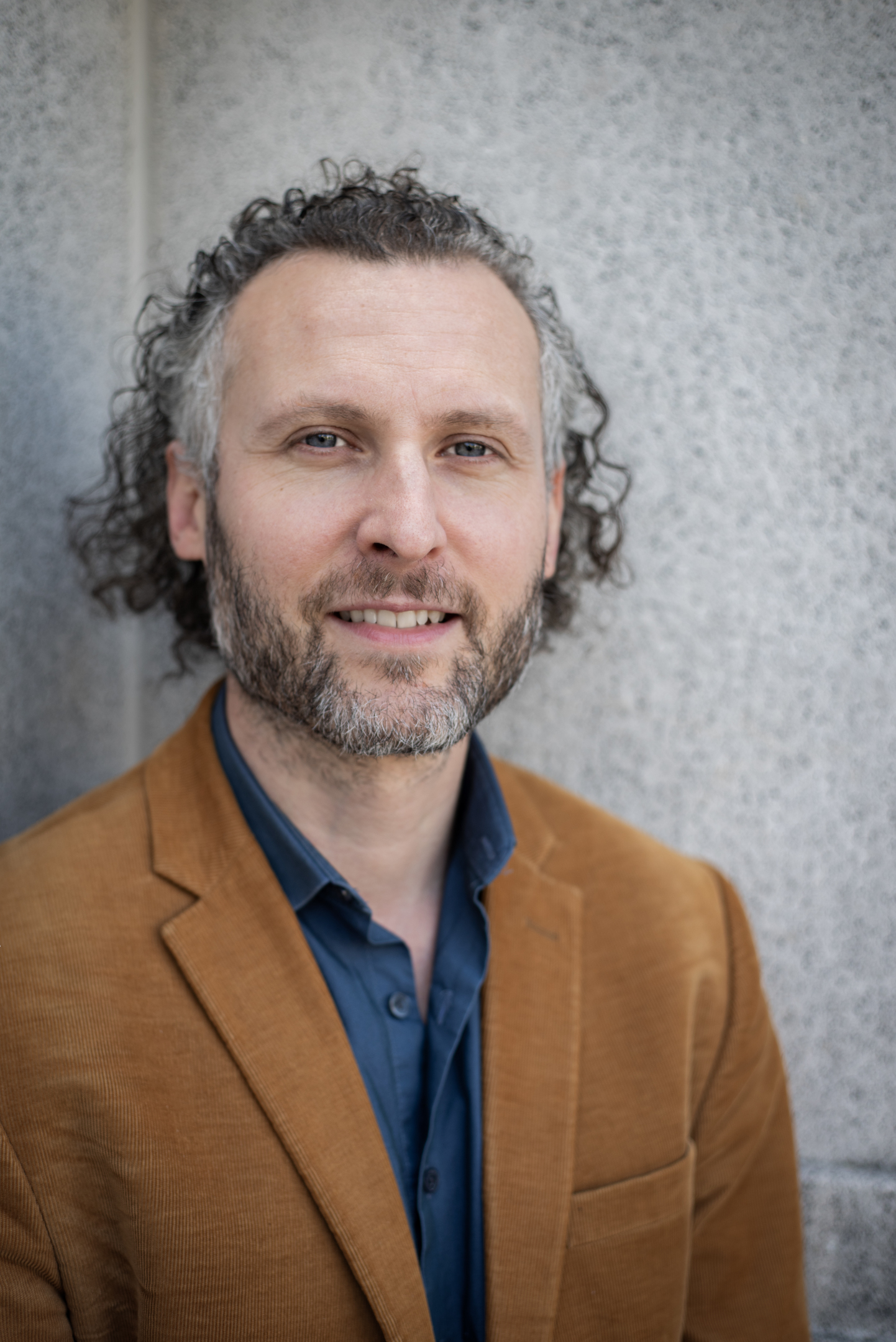
|
| Talk-08 • Navigating the Complexities of Cyber-Physical Energy Storage for Grid Deployment Speaker: Dr. Di Wu, Chief Research Engineer, Pacific Northwest National Laboratory (PNNL) Abstract: Energy storage can solve a multitude of issues in today’s rapidly evolving electric power grid and holds great potential for a future decarbonized grid. Merging physical devices with advanced cyber systems—encompassing control, computing, and communication technologies—enables sophisticated management and optimization. Meanwhile, this integration introduces multifaceted complexities, presenting significant challenges in project development and power system planning and operation. This presentation will delve into the complexities of cyber-physical energy storage and present the latest research work in modeling, optimization, valuation, and control of these systems. Insights and lessons learned from real-world energy storage projects will also be shared. Biography: Di Wu is a Chief Research Engineer and a team leader within the Optimization and Control group at the Pacific Northwest National Laboratory (PNNL). He received his B.S. and M.S. degrees in electrical engineering from Shanghai Jiao Tong University, China, and a Ph.D. in electrical and computer engineering from Iowa State University. His current research interests include energy storage, microgrids, hybrid energy systems, plug-in electric vehicles, and building-to-grid integration. At PNNL, Dr. Wu leads research work in areas of energy storage analytics, grid deployment, and field validation. As a senior member of the Institute of Electrical and Electronics Engineers (IEEE), Dr. Wu actively contributes to the IEEE Power and Energy Society. He has been an Associate Editor of IEEE Transactions on Energy Markets, Policy and Regulation since 2022. He served as an Associate Editor for IEEE Power and Energy Technology Systems Journal and IEEE Open Access Journal of Power and Energy from 2014 to 2022. Dr. Wu also chairs the IEEE Task Force on Data Analytics of Energy Storage and co-chairs the IEEE Task Force on Hydrogen Integration into Power Systems. |
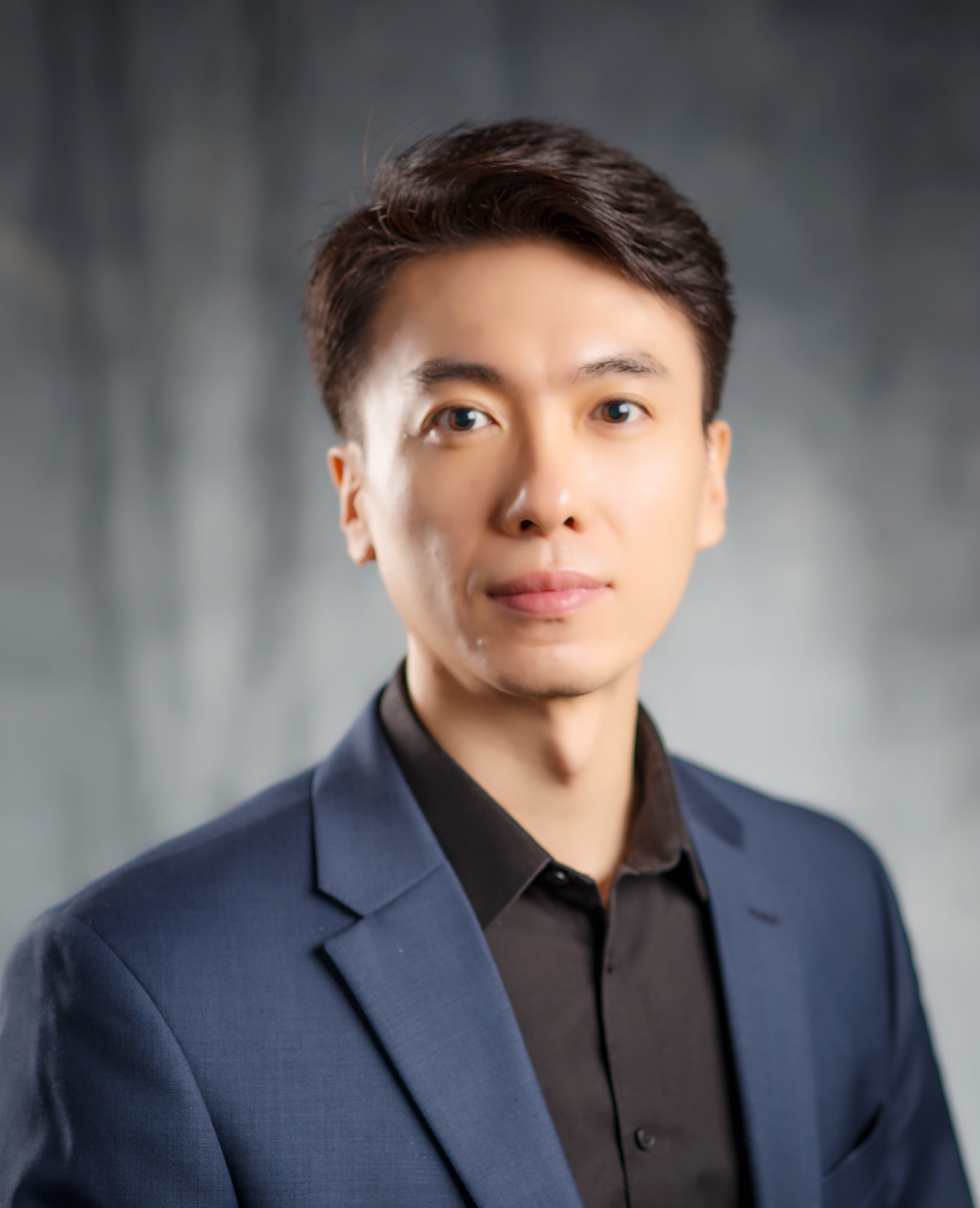
|

